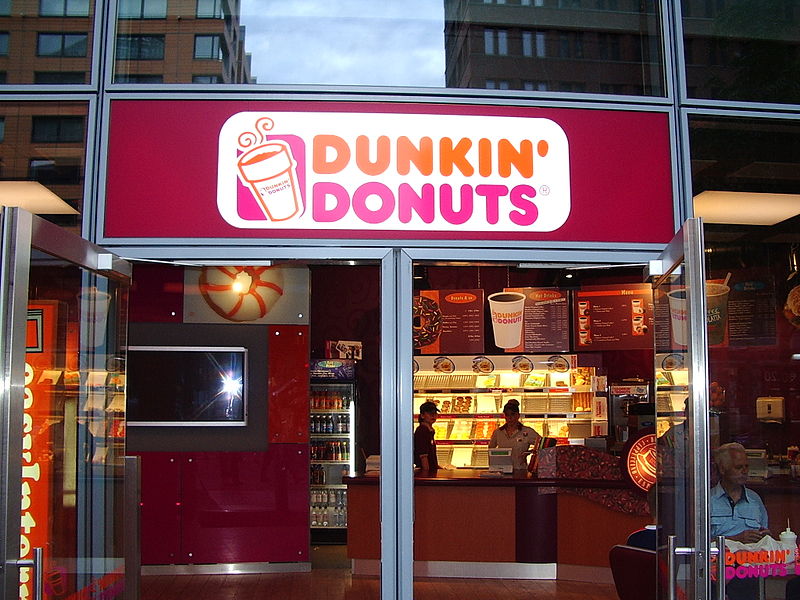The question that many are now asking is whether or not the achievement is of the brand or the system.
Dunkin’ Donuts has had its own mobile app for a while now, and this application allows smartphone users to be able to accumulate loyalty points as well as make mobile payments in order to complete their transactions while in stores, but recent data is now causing many to ask whether the same successes seen at Starbucks could be possible in this rival franchise.
Some data regarding the usage of this mobile app has provided insight into this coffee shop trend.
According to a report issued by BI Intelligence, which provided then results of some number crunching with regards to the data that Dunkin’ Donuts has made available, there are a number of points that can be understood about the way that the mobile payments app is being used at that company’s locations. Though that company does not report the actual dollar volume that is achieved as a result of transactions over mobile devices, the data that they have provided still shows some interesting trends.
The Dunkin’ Donuts data has provided some indications with regards to the traction of the mobile payments app.
 Among the points reported by BI Intelligence included the following:
Among the points reported by BI Intelligence included the following:
• The Dunkin’ Donuts mobile app has, according to the company’s own figures, already been downloaded more than 10 million times. It was originally launched in August 2012.
• The Starbucks application is currently reported to be maintaining 12 million active users in North America.
• At Starbucks, more than 15 percent of all of the transactions completed in the United States locations are m-payments.
The BI Intelligence report stated that one of the primary drivers of success of the Starbucks mobile payments app is the company’s loyalty program. Dunkin’ Donuts has clearly used a similar strategy in encouraging the adoption and use of its own application. When using that app, customers are able to build “DD Perks” rewards points, which can later be redeemed in order to obtain free items such as beverages. QR codes are also central to the verification process for transactions in the apps of both companies.
According to a recent ABI Research study, these applications are ready to be transformed for the better.
The results of a new study by ABI Research have been released and have shown that as new powerful players such as Samsung, Google, and Apple make their way into the mhealth space, the apps in this category are getting ready to undergo a considerable transformation.
Over the last two years, the movement in these health and fitness based apps has held limited continuity.
A study that spanned two years showed that mhealth apps on the iOS and Android platforms have seen quite a low level of continuity in terms of popularity. As a whole, the popularity of applications is split between the range of the functionality and of the vendors. As this specific market begins to mature, however, it is increasingly believed that there will be a transformation of the apps that make it up.
Mhealth apps will become more important to the sharing of health care data and will link to many types of service.
 The ABI Research study showed that it will be more commonplace for mobile health apps to be used by patients to share health data with doctors. Moreover, it will be used by way of a range of different connected platforms and devices, for that matter. Platforms will include those such as Google Fit, the HealthKit from Apple, and Epic MyChart, among others.
The ABI Research study showed that it will be more commonplace for mobile health apps to be used by patients to share health data with doctors. Moreover, it will be used by way of a range of different connected platforms and devices, for that matter. Platforms will include those such as Google Fit, the HealthKit from Apple, and Epic MyChart, among others.
According to the ABI Research Principal Analyst, Jonathan Collins, “In both categories there has been a good deal of variation between the most popular apps—from quarter-to-quarter and between iOS and Android.” At the same time, Collins explained, there remains a widespread consensus when it comes to the types of mobile apps that are the most popular and that continue to build the drive toward data integration that is collected by way of wearable technology devices. This creates an overall environment in which there are many different players.
At the moment, mhealth apps are headed in a direction toward tracking activity and assisting an individual in meeting his or her general health needs. That said, within the medical category, itself, there is a growing interest in those that will provide medical service connections as well as information.
 Among the points reported by BI Intelligence included the following:
Among the points reported by BI Intelligence included the following:
 The ABI Research study showed that it will be more commonplace for
The ABI Research study showed that it will be more commonplace for 